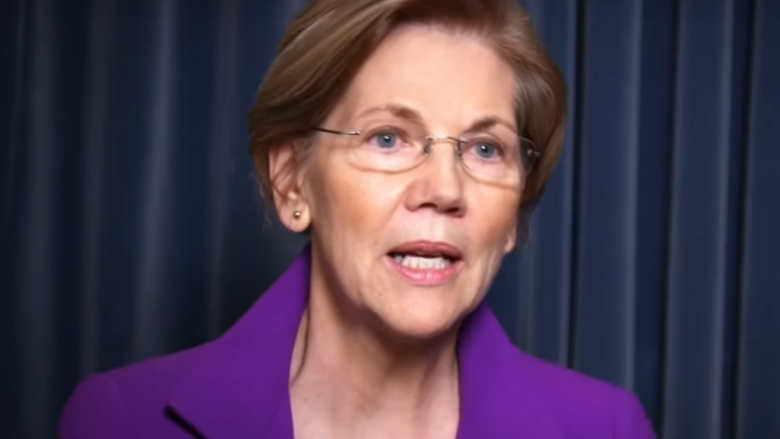What Went Wrong in Elizabeth Warren’s Unprecedented Massachusetts Defeat?
By Tom Joyce | March 4, 2020, 16:50 EST

Elizabeth Warren had an unprecedented night on Super Tuesday.
The Democrat did not win any of the day’s 14 presidential primary contests, including the one held in Massachusetts. Instead, Warren — the state’s sitting senior U.S. senator — finished third in the Bay State behind former Vice President Joe Biden and Vermont Senator Bernie Sanders.
In modern times, that had never happened to a major presidential candidate from Massachusetts who had not already dropped out.
In the 21st century, former Massachusetts Governor Mitt Romney won the Massachusetts Republican primary twice (2012 and 2008) and former Senator John Kerry took it on the Democratic side in 2004.
Kerry’s predecessor, Paul Tsongas, won the Massachusetts Democratic primary in 1992; and four years prior, former then-Governor Mike Dukakis did the same.
Two Kennedys who served as U.S. senators from the Bay State, John F. Kennedy, and Ted Kennedy, won Massachusetts in Democratic primaries 20 years apart (1960 and 1980). Even Henry Cabot Lodge, then a former U.S. senator serving as ambassador to South Vietnam, won the state as a write-in candidate in the 1964 Republican primary.
Following Super Tuesday, Warren had not finished higher than third place in any of the 18 contests that had taken place.
Her 2018 U.S. Senate challenger, Geoff Diehl, a Republican, said he expected Warren to lose Massachusetts, but was somewhat surprised she lost by double digits. But he said he understands why Bay State voters rejected Warren.
“Warren has always had an authenticity problem — from her refusal to admit benefiting from claiming Native American heritage to decrying Super PAC money in campaigns and then flip-flopping and taking special interest cash as her campaign reached desperation status,” Diehl told New Boston Post in an email message. “It was clear during her US Senate re-election campaign that she never had any intention of actually working for the people of Massachusetts, as she flew every other weekend in 2018 to states around the country to prep for her Presidential ambitions.”
Diehl said Massachusetts voters are “pretty savvy about politics” and could see Warren’s inauthenticity. He also said it would be wise for her to drop out.
“It’s obvious she no longer has a viable path,” he said, “having angered the Sanders supporters by attacking him in her effort to claw for the progressive lane. I would expect an exit from the race at any moment.”
Boston College political scientist Dave Hopkins also said he does not see Warren staying in the race for long.
He also said Warren’s problems with Massachusetts Democrats date back years.
“Warren faced both a long-term and a short-term problem in Massachusetts,” he told New Boston Post in an email message. “The long-term problem is that she has never been universally beloved among Massachusetts Democrats, especially the more moderate and working-class wing of the party, so she was never in position to completely dominate her home-state primary.
“The short-term problem was the national shift to Biden among Democrats after South Carolina and the increasing perception that she didn’t have a path to the nomination herself,” he added. “Older voters and suburbanites who are skeptical about Bernie Sanders have settled on Biden as the alternative, and that trend pulled votes away from Warren in the last few days before the election.”
Veteran political scientist and New England College vice president of academic affairs Wayne Lesperance said that at this point, Warren’s plan to snag the nomination has to involve a contested convention.
He noted that the election is now a two-man race between Sanders and Biden, with the progressive Democrats backing Sanders and the more moderate or pragmatic voters backing Biden.
“I think we see voters across the country voting for a return to normalcy,” Lesperance told New Boston Post in an email message. “The revolutionary language of the two progressive candidates along with what amounts to radical change appears to be too far too fast for many voters. If the results of Super Tuesday tell us anything, it’s that voters crave a return to normal.
“Finally, don’t underestimate the impact of the coronavirus scare and the 24-7 coverage it has been receiving. People are nervous and I think that leads them to want the familiar and push back against the discomfort that attends big change,” Lesperance said.
The next presidential primaries are set for Tuesday, March 10 in seven states.









